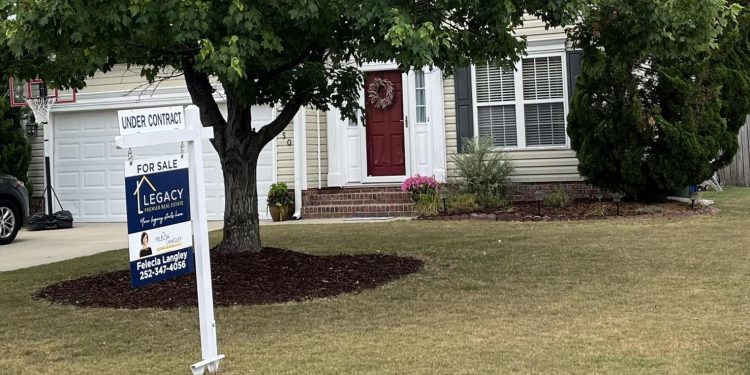By Brett Rowland | The Center Square
(The Center Square) – Home prices could climb 2% in 2025 and an additional 2% in 2026, according to the latest forecast from the National Association of Realtors.
The group’s economist, Lawrence Yun, projected the median U.S. home price would continue to increase in 2025, but at a slower pace compared to previous years, reaching a $410,700 median existing-home price. The median home price in November stood at $406,100.
“Home price growth could be more muted, more modest,” Yun said. “Maybe it’s a healthy thing, we want income to catch up with home prices, maybe giving a couple years or more of lighter price growth may be a good thing.”
At the group’s annual summit, Yun said he expected the Federal Reserve to maintain a gradual approach to easing monetary policy in 2025.
“While concerns about federal deficits and rising public debt may cap the extent of those rate cuts, borrowing costs are anticipated to stabilize overall, offering some relief to prospective buyers,” according to the forecast.
NAR forecasts that mortgage rates will stabilize near 6% in 2025, which it expects to become the “new normal.”
At this rate, more buyers are expected to come back to the market, boosting activity, and the association projects 4.5 million existing-home sales in 2025. In November, the yearly sales pace was at 4.15 million units.
Despite a continued national housing shortage, Yun said inventory levels are gradually improving and poised to increase further next year.
“This uptick is anticipated to result from a combination of new construction projects and homeowners deciding to list their properties, encouraged by stabilizing mortgage rates and improving market conditions,” according to the group. “NAR expects this to lead to increased construction, with housing starts reaching 1.45 million units in the next couple of years, just shy of the historical average annual level of 1.5 million units.”
That could put more people in the position to buy homes.
“Home buyers will have more success next year,” Yun said. “The worst of the affordability challenges are over as more inventory, stable mortgage rates and continued job and income growth pave the way for more Americans to achieve homeownership.”




